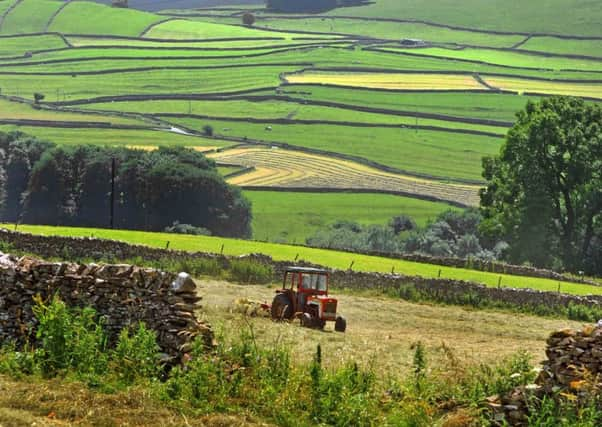The Yorkshire Post says: time to get tough on rural crime


And this crimewave affecting the countryside is getting worse. The figures from insurers NFU Mutual make for depressing reading, showing as they do a 20 per cent increase in the past year, and raising the cost of crime to a staggering
£3.6m. It is clear that to a certain category of criminal farms are easy targets, being often relatively isolated and difficult to secure given that they cover large areas.
Advertisement
Hide AdAdvertisement
Hide AdThe comparatively sparse populations of rural communities, and the difficulties police have in covering them only add to the problem of tackling crime.
Yet, tackle it we must. Farmers cannot afford the loss of valuable equipment they rely on to put food on our tables and safeguard the landscape, or the increased insurance premiums they are bound to face as a result of crime.
The scale of rural crime demands that a concerted effort is made to combat it. There are some encouraging indicators of a way forward. The taskforce set up by North Yorkshire Police is achieving results, and the rate of increase in the
force’s area is the smallest of anywhere in the region. This suggests that the North Yorkshire model is one that other forces might emulate. Intelligence surely has to play its part, too. Stolen farm machinery is being sold on somewhere, and given the specialist market for it, additional resources put into this area may reap dividends.
Advertisement
Hide AdAdvertisement
Hide AdAs with all crime, vigilance on the part of the rural community is key. The people of our countryside must be the eyes and ears of the police if rural crime is to be beaten.
Child safety - Protection must be funded
IT is unacceptable that vulnerable children at risk of abuse or neglect are being effectively denied the help and support they need because of cuts in local authority budgets.
The financial pressures on councils are well-known. Shrinking budgets and the Government funding squeeze against the backdrop of continuing austerity have left councillors and their officers facing unpalatable decisions on where cuts
must fall.
The report by the charity Action for Children paints a disturbing picture of the consequences that this cost-cutting can produce. The shrinking of social services budgets has left up to 140,000 children at risk because they do not meet
Advertisement
Hide AdAdvertisement
Hide Adthe threshold for early intervention. It must be remembered that these are children identified as being in jeopardy. The dangers they face have not miraculously disappeared, but simply no longer qualify for intervention because the bar has been raised on when social services become involved.
The potential effect of this is to leave these children exposed to danger even though the risks to them are known about. This cannot be a situation that is tolerated in modern Britain, especially when the report has identified it as a
national problem.
The Government must intervene and provide an adequate level of funding to ensure that social services are able to step in and help vulnerable children at the earliest possible stage.
The responsibility for finding the money to protect children cannot be shifted onto local authorities. It is a matter for the country as a whole, and demands urgent action.
Debt of honour - the importance of remembrance
Advertisement
Hide AdAdvertisement
Hide AdTHE placing of a headstone on the grave of Lance Corporal William Loney 73 years after he died in the Battle of Arnhem is a reminder that our debt of honour to Britain’s fallen remains payable irrespective of how much time passes.
The Dutch researchers who identified the grave of an unknown soldier as L/Cpl Loney’s have done a service not only to his memory, but to the cause of remembrance of how hard-won the freedoms we take for granted are.
Britain has become more conscientious in recent years in its remembrance of those who made the ultimate sacrifice. This is perhaps due to the losses of young servicemen and women in conflicts of our own age such as Iraq and
Afghanistan.
We owe the fallen of all conflicts the dignity of remembrance. For by remembering them, we remind ourselves what it took for us to live as we please today.